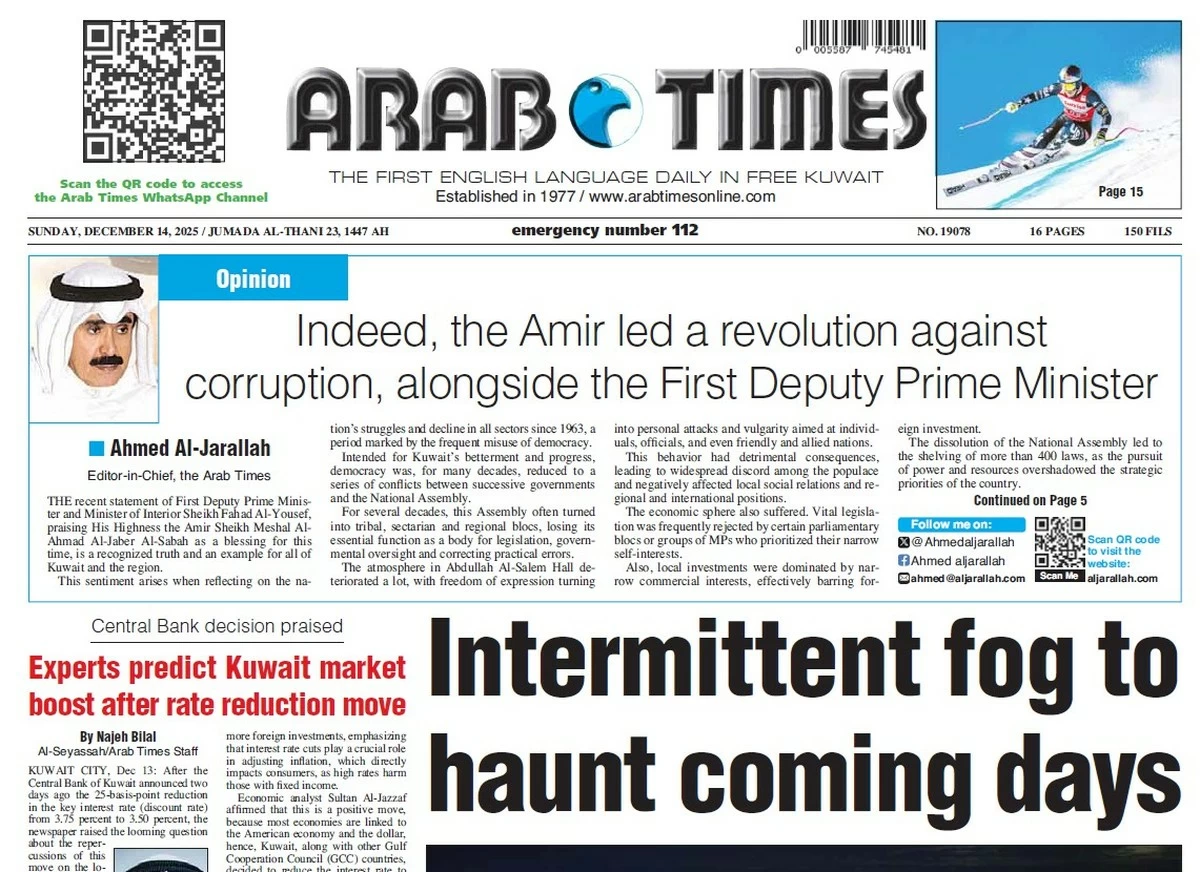14/01/2024
14/01/2024

FOR three decades, Kuwaitis have been trying to rejoice about any change in the Council of Ministers, and hoping that it will be the beginning of their way out of the impasse.
They hence rejoiced when the Amiri order was issued to assign Sheikh Dr. Mohammad Sabah Al-Salem to form the Council of Ministers. However, when reports about the possibility of certain individuals entering the ministry were leaked, those hopes began to fade.
Kuwait has endured governmental experiments, most of which, if not all, were failures. They cast their shadow over the country’s situation, while the improvised solutions generated some phenomena that people were not accustomed to.
Retrogression at various levels has also become a general feature. This undoubtedly has had a negative impact on the economy, society, culture and the arts. While the world is moving towards openness, our country is closing itself.
It is as if what is coming is worse than what we have already gone through. On the other hand, other Gulf countries have taken great steps in opening their doors based on controls that Kuwaitis cannot even dream of.
A few days ago, the Saudi government issued five new categories of residency to attract foreign investments, and for the localization of local capital, as well as to encourage economic movement, not to mention the facilities in the Emirates, Qatar, the Sultanate of Oman, and the Kingdom of Bahrain. All of this encouraged the diversification of sources of income for those countries.
The rate of revenues generated from the industrial sector in Bahrain was 18 percent, and in the UAE, it was 21 percent, but in Kuwait it constituted only about 6.6 percent of the gross domestic product.
Therefore, the questions we ask in this regard are - What is the strategy that the state has used, not from the time of liberation but from the time of independence until today, to benefit from the wealth to enhance productive sectors. Did successive governments establish a welfare state? Will this matter be part of the program of the new Council of Ministers?
There is no doubt that the lack of progress in Kuwait was not limited to industry only, but also extended to health and education, and infrastructure, which is not befitting a country with such great wealth.
There are many files before the new Council of Ministers, due to which there must be ministers with a great degree of awareness of these crises to work on resolving them, especially the Bedoun file, which the neighboring countries managed to solve by allowing this neglected workforce to create added value to their national economy.
They also solved the problem of the leakage of money from residents who do not find any outlet for themselves. Instead of spending what they earn in the country, the rate of their money being sent to their country increases annually, while all you hear are suggestions that indicate backwardness and extremism.
Therefore, the Kuwaitis today, with the leaking of names of ministers who are not ambitious, have begun to fade the flame of joy with which they welcomed the appointment of Sheikh Dr. Mohammad Al-Sabah Al-Salem.
Will the next few days belie those expectations? Will the Prime Minister hire a strong and trustworthy team?
Tomorrow is near, and as the Egyptian popular proverb goes - “News that cost money today will be for free tomorrow.”
By Ahmed Al-Jarallah
Editor-in-Chief, the Arab Times


